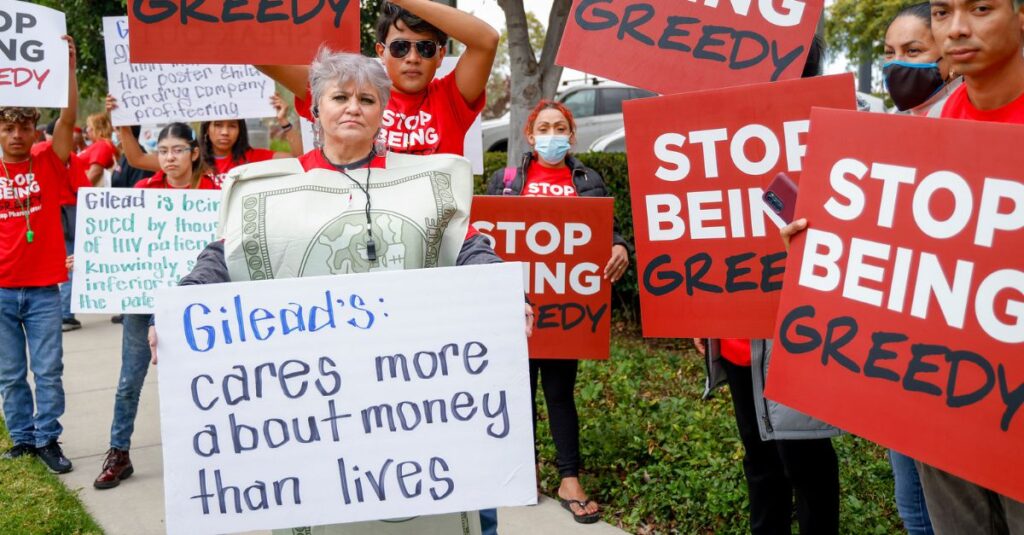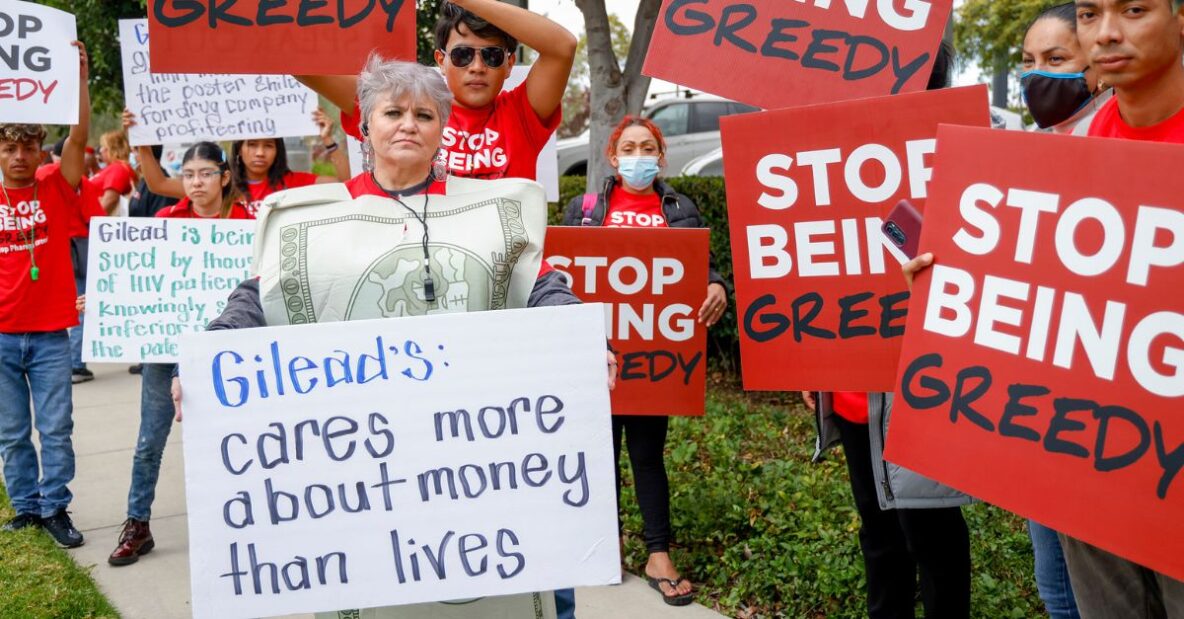ELURA NANOS | Jan 15th, 2024

A California appeals court has ruled that a pharmaceutical company can be held legally responsible for slow-walking the sale of an effective AIDS drug, because its decision may have been made solely to maximize its own profits.
In a first-of-its-kind ruling, the California First District Court of Appeals in San Francisco ruled Tuesday that pharma giant Gilead Life Sciences can be held liable by 24,000 AIDS patients for negligently delaying one drug to maximize profits with a more dangerous alternative.
The drug at issue was tenofovir disoproxil fumarate (TDF), which was one of the first effective HIV medications and a component of the drug marketed under the name Truvada; TDF was developed in 1991 and approved by the U.S. Food and Drug Administration in 2001. TDF is not effective when administered orally, and was known to produce “rapid and severe decline in kidney function” when injected. Therefore, as part of the FDA approval process, Gilead was required to develop an alternative form of the chemical — known as a “prodrug”— that could be taken by mouth.
Gilead had also begun developing tenofovir alafenamide fumarate (TAF), an altogether different and more effective drug that could be taken in lower doses and with fewer side effects. According to plaintiffs, Gilead’s president made a 2011 statement to investors that TAF would be a “kinder, gentler” version of TDF.
Gilead stopped development of TAF in 2004. In their lawsuit, plaintiffs who took TDF and suffered skeletal or kidney damage said that Gilead’s decision to discontinue work on TAF was driven by a conscious business strategy to maximize the financial value of the less effective, more problematic TDF.
Plaintiffs said the company’s strategy yielded over a billion dollars in profits, just between 2018 and 2020. Gilead has denied the allegations and argued that if it had been solely motivated by profit, it would actually have expedited TAF.
The plaintiffs did not sue Gilead for producing a defective drug in TDF; rather, they sued for ordinary negligence. They claimed that Gilead’s decision to defer the development of TAF solely to maximize its profits amounted to a breach of its duty of reasonable care to TDF users. They also raised claims for fraudulent concealment, arguing that Gilead actively concealed that TAF was safer than TDF.
Gilead filed for summary judgment and argued that while it could have been held liable if its product had been defective, there is no basis to hold it legally responsible for delaying one non-defective drug while offering another.
Justice Jeremy Goldman wrote for a unanimous three-judge panel of the appellate court and ruled that if TAF was delayed “solely to maximize Gilead’s profits,” it could amount to negligence on the company’s part.
The panel agreed with Gilead that the decision to delay the sale of a safer drug could be made for “morally neutral, or even worthy, reasons,” but said that the court’s job is not to evaluate whether there were any blameworthy or negligent reasons for Gilead’s delay of TAF. When a manufacturer has control over the timing of a safer drug’s availability, the decision to delay commercialization might indeed be negligent, said the court.
Goldman explained in a 62-page opinion:
In context, then, the duty question we must address is whether a drug manufacturer, having invented what it knows is a safer, and at least equally effective, alternative to a prescription drug that it is currently selling and that is not shown to be defective, has a duty of reasonable care to users of the current drug when making decisions about the commercialization of the alternative drug.
Goldman also clarified that the ruling should not be interpreted as one that “require[s] the pursuit of commercialization at all costs.” He elaborated that even if manufacturers might sometimes suffer “failed or wasted efforts” as they pursue a potentially safer product for longer than they might want, the overall goal of producing safer products might justify a duty to do so.
“This drug company thought the billions it would squeeze out in profits were simply worth the suffering of the HIV community,” said Robert Jenner, one of the lawyers for California patients whose suits were consolidated in San Francisco Superior Court.
Gilead has not announced whether it plans to appeal the ruling to the California Supreme Court.
Gilead’s general counsel, Deb Telman, warned the ruling will have “widespread, negative consequences across all fields of innovation and manufacturing, undermining the development of new products and discouraging improvement of existing products.”
The panel specifically addressed the potential “flood of litigation” in its ruling — and flatly rejected it as a risk.
“On the contrary, if this situation were common, the claim likely would have arisen long ago,” Goldman pointed out. “Nor, contrary to Gilead’s argument, will the duty upend products liability by creating a ‘perfect product’ law.”
Goldman said the duty does not require manufacturers to perfect their drugs, but rather, one “simply to act with reasonable care for the users of the existing drug when the manufacturer has developed an alternative that it knows is safer and at least equally efficacious.” The judge said manufacturers already engage in this type of innovation during the ordinary course of business, and most plaintiffs would have a hard time proving otherwise.
The appeals court reversed the lower court’s ruling on the plaintiff’s fraudulent concealment claims, agreeing with Gilead that its duty did not extend to disclosing information about TAF to plaintiffs.
The court’s ruling does not mean that plaintiffs have proven Gilead to have acted with negligence, or that the lawsuit has concluded. Rather, it means that the case can now proceed toward trial at which the plaintiffs would have the chance to introduce a full body of evidence to prove their claims against Gilead.
You can read the court’s full ruling here.
Representatives from Gilead did not immediately respond to requests for comment.

